Diplomatic Bluebook 2018
Chapter 3
Japan's Foreign Policy to Promote National and Global Interests
7 Human Rights
(1)Initiatives within the UN
A UN Human Rights Council
The UN Human Rights Council was established in 2006 as a restructured version of the UN Commission on Human Rights, in order to strengthen the UN's ability to address human rights issues, as part of a movement towards mainstreaming human rights in the UN. The Human Rights Council holds sessions throughout the year in Geneva (three regular sessions per year, lasting more than ten weeks in total) to discuss issues and make recommendations concerning the protection and promotion of human rights and fundamental freedoms. To date, Japan has served as a member of the Council from June 2006 to June 2011 (the first and the second terms) and January 2013 to December 2015 (the third term). Most recently, Japan was elected in the elections held in October 2016, and currently serves as a member of the Council from January 2017 to December 2019 (the fourth term).
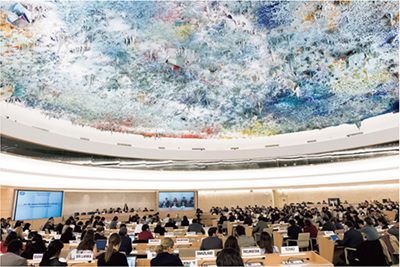 United Nations Human Rights Council Chamber (Photo: UN Photo/Jean-Marc Ferré)
United Nations Human Rights Council Chamber (Photo: UN Photo/Jean-Marc Ferré)At the high-level segment of the 34th Session in February and March 2017, Parliamentary Vice-Minister for Foreign Affairs Takisawa delivered a statement. In his statement, he expressed that with Japan's re-election as a member of the Human Rights Council, it will continue to put effort into promoting diplomacy that places importance on fundamental values such as freedom, democracy, basic human rights, and the rule of law, while improving the human rights and humanitarian situation in the world.
During the same Session, the Resolution on the Situation of Human Rights in the Democratic People's Republic of Korea (DPRK), co-tabled by Japan and the EU, was adopted without a vote (adopted for ten consecutive years). This resolution condemns in the strongest terms North Korea's ongoing systematic, widespread and gross human rights violations, and urges North Korea to take immediate steps to end all human rights violations, including the abductions issue. In addition, it welcomes the decision of the UN Security Council to hold a Council meeting, during which the situation of human rights in North Korea was discussed, and looks forward to the continued and more active engagement of the UN Security Council on this matter. Furthermore, it decides to strengthen the capability of the Office of the United Nations High Commissioner for Human Rights (OHCHR), including the field-based office in Seoul, in order to implement the relevant recommendations in the report of the Group of Independent Experts on Accountability for human rights violations in the DPRK.
At the 35th Session in June, Japan, together with Brazil, Ethiopia, Fiji, and Morocco jointly submitted a resolution on the Elimination of Discrimination Against Persons Affected by Leprosy and Their Family Members, which was adopted without a vote. The number of co-sponsors of the resolution reached as many as 50 countries. This resolution determines the appointment of a Special Rapporteur on the elimination of discrimination against persons affected by leprosy and their family members in the Human Rights Council for a term of three years, with the aim of protecting the human rights of people around the world who are affected by discrimination issues due to leprosy. Furthermore, it encourages that the UN High Commissioner for Human Rights and this Special Rapporteur conduct a seminar on leprosy-related discrimination.
At the 36th Session in September, Japan submitted a resolution on the Human Rights Situation in Cambodia, as the main sponsor of the resolution, and this resolution was adopted without a vote. Aimed at continuing to support positive efforts by the Cambodian Government towards improving the human rights situation in Cambodia, this resolution reflects the concerns of the international community on the recent human rights situation in Cambodia, and requests for a written report on the human rights situation in Cambodia to be submitted to the UN Secretary-General at the UN General Assembly in March 2018. Through this resolution, the mandate of the Special Rapporteur for the human rights situation in Cambodia was extended for two years (See Column “Adoption of the Resolution on ‘Advisory Services and Technical Assistance for Cambodia'”).
Japan will continue to be actively engaged in discussions in the UN Human Rights Council to resolve human rights issues in the international community.
The UN Human Rights Council conducts the Universal Periodic Review (UPR) that periodically reviews the human rights situations of all UN Member States. Japan was reviewed for the third time in 2017. In August, ahead of its review, Japan submitted a report concerning its human rights situation to the UN. In November, the third review was carried out in the UPR Working Group. Japan explained its domestic human rights situation as well as initiatives in Japan and abroad, including the Japan-ROK agreement of December 2015 on the issue of comfort women as progress since the previous review (2012). In addition, Japan explained its stance and policy concerning remarks made by each country38.
- 38 For more details, refer to: http://www.mofa.go.jp/mofaj/fp/hr_ha/page22_002899.html
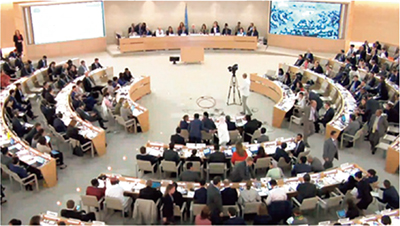 36th session of the UN Human Rights Council (September 29, Geneva, Switzerland)
36th session of the UN Human Rights Council (September 29, Geneva, Switzerland)On September 29, 2017 (local time), the Resolution on “Advisory Services and Technical Assistance for Cambodia,” submitted by Japan as the main proposing country, was adopted by consensus (without a vote) at the 36th Session of the UN Human Rights Council held in Geneva, Switzerland.
Japan has been submitting this resolution to the UN Human Rights Council since 1999. The resolution, which aims to provide support for further efforts by the Government of Cambodia to improve the human rights situation, has been adopted by consensus every time.
This latest resolution reflects the concerns of the international community for the recent human rights situation in Cambodia, and calls for the UN Secretary-General to report on the human rights situation in the country, in writing, at the Human Rights Council to be held in March 2018. The resolution also incorporates the decision to extend the term of office of Special Rapporteurs for human rights in Cambodia, and to continue providing support for positive efforts by the Government of Cambodia to improve the human rights situation in the country.
Towards the submission of this resolution, Japan held human rights dialogues with the Government of Cambodia in the capital Phnom Penh in August 2017, and worked tirelessly to exchange views with ASEAN, Europe and the U.S., and civil society. Through these efforts, it aimed to formulate a balanced resolution that takes various opinions into consideration.
Japan is closely monitoring the human rights situation in Cambodia, and expects the adoption of this resolution to contribute to improving the human rights situation in the country.
Serving as a Member of the Committee on Enforced Disappearances
Koji Teraya, Professor, The University of Tokyo
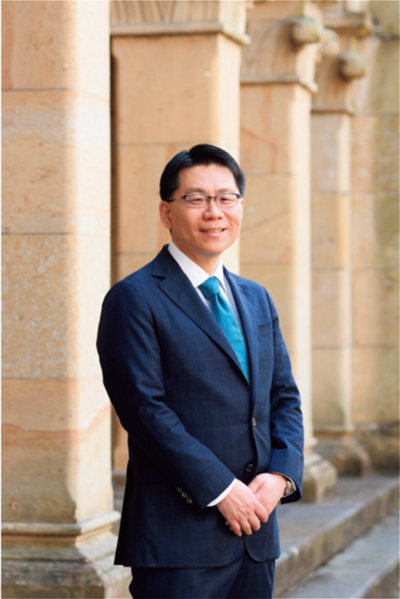
I have been serving as one of the ten members of the Committee on Enforced Disappearances (CED) for a four-year term starting since July 1, 2017. This is the committee that carries out missions under the International Convention for the Protection of All Persons from Enforced Disappearance (adopted in 2006, entered into force in 2010), and is currently the newest committee among similar UN human rights treaty bodies.
So far I have attended only one session of the Committee, which holds two sessions every year, and I found that the work at the session proved to be a very intensive experience. As a member of the Committee with an academic background, I sometimes felt lost and confused due to the differences in behavior and approaches between academics and practitioners, and felt anew my fundamental identity as an academic. At the same time, however, I also felt a certain sense of excitement as I was able to apply my accumulation of academic knowledge to practical situations.
In contrast with the normative strength of human rights and our expectations of that, human rights issues call for delicate treatment and complex deliberations of interests in both academic and practical aspects, and it is often the case that conclusions cannot be reached in a careless and thoughtless manner. However, it is obvious that enforced disappearances is one of the most serious criminal offenses; in light of that, I approach the related issues while constantly bearing in mind the simple and clear purpose of “reducing the number of enforced disappearances as far as possible, even if it is just one person.” While there are various issues to deal with, I am particularly interested in a pressing issue faced by the CED, that is, increasing the number of States Parties to the Convention, for example.
Japan is one of the countries taking the lead in addressing the issue of enforced disappearances. This is a reflection of one of the most important challenges in Japan's diplomacy, which is to resolve the issue of abductions by North Korea. It is unfortunate that North Korea is not a State Party to the Convention; hence, this Committee has no capacity to tackle the issue directly. However, usually problems are not solved simply by making loud proclamations about the interests of one's own country, and it is not desirable to do so. I believe that the interests of an individual country exist within universal interests, while universal interests exist within the interests of an individual country; hence, we should always keep in mind the importance of ensuring harmony and balance between the individual and the whole. I, myself, take great joy in being a part of this large overarching entity.
On Being Elected as a Member of the Committee on the Elimination of Racial Discrimination
Keiko Ko, Professor, Nanzan University
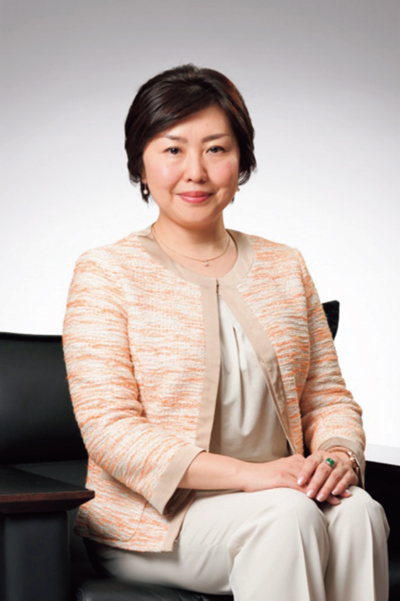
One of the purposes of the United Nations is, “To achieve international cooperation […] in promoting and encouraging respect for human rights and for fundamental freedoms for all without distinction as to race, sex, language, or religion” (Article 1-3, Charter of the United Nations). To that end, it has provided support for the conclusion of many treaties aimed at protecting human rights. Of these, the earliest was the International Convention on the Elimination of All Forms of Racial Discrimination adopted in 1965. The Committee on the Elimination of Racial Discrimination (CERD) reviews reports submitted by the States Parties and petitions from individuals in accordance with the Convention. I stood for the election (June 2017) for this Committee as the first candidate from Japan. I was successfully elected, winning support from 132 countries. The number of countries that are States Parties to the Convention stands at 179, and during the election campaign that spanned a four-month period, I had the opportunity to meet the representatives from approximately 160 countries. I had aspired to join the United Nations when I was young, so the election campaign that allowed me to meet many people from around the world was an invaluable experience for me, and I reaffirmed my strong conviction that protecting human rights was a universal value.
The main work of CERD is to review the reports submitted by States Parties to the Convention. In accordance with the Convention, we assess if these States Parties are not engaged in acts of racial discrimination, and provide recommendations. As a member of the Committee, I am dedicated to understanding and dialogue. Discrimination is deeply rooted in the hearts of people, and no individual is completely divorced from discrimination. Even if it appears to have been eradicated, discrimination may rear its ugly head once again, and we can see this problem emerging in recent international affairs as well. That is why it is necessary to persevere and put continued effort into eliminating discrimination. As a permanent organization, CERD carries the responsibility of ensuring this continued effort. We sometimes issue strict recommendations to the States Parties, but the nature of criticism is such that simply raising our voices is meaningless if these voices do not reach the States Parties; in short, changes can only arise in the actions of a State Party if our voices reach them. As a member of the Committee with such a long history behind it, it is my goal to present views that the States Parties will pay attention to.
B The Third Committee of the UN General Assembly
The Third Committee of the UN General Assembly is, along with the Human Rights Council, the UN's main forum focused on human rights. Generally in October and November, the Committee discusses a wide range of issues, including social development, women, children, racial discrimination, refugees, crime prevention, and criminal justice, as well as the human rights situations in North Korea, Syria, and Iran, among others. Resolutions adopted by the Third Committee are then adopted by a plenary session of the General Assembly, contributing to the development of international norms.
Every year since 2005, Japan and the EU have co-tabled the Resolution on the Situation of Human Rights in DPRK at the UN General Assembly. In 2017, Japan and the EU again co-tabled the resolution at the Third Committee in November and Plenary Session in December of the 72nd session of the General Assembly, which was adopted without a vote. The resolution, based on the UN General Assembly Resolution of 2016 reflecting the final report of the Commission of Inquiry on Human Rights in the DPRK (COI), condemns the North Korea's systematic, widespread, and gross human rights violations, and urges North Korea to take measures to end all human rights violations. In addition, the resolution underscores very serious concerns regarding reports of torture, summary executions, arbitrary detention, abductions and other forms of human rights violations and abuses that North Korea commits against citizens from other countries within and outside of its territory. It also condemns North Korea for diverting its resources into pursuing nuclear weapons and ballistic missiles over the welfare of its people, and emphasizes the necessity of North Korea to respect and ensure the welfare and inherent dignity of the people in North Korea. As in 2016, it also encourages the UN Security Council to take appropriate actions, including through consideration of referral of the situation in North Korea to the International Criminal Court (ICC), and consideration of the further development of sanctions.
In addition, Japan also actively participated in discussions on the human rights situations in individual countries, such as Syria, Iran, and Myanmar, as well as discussions on various human rights issues (social development, the rights of the child, and etc.). Japan participated actively in discussions in the international community toward protecting and promoting human rights, in cooperation with civil society, such as by dispatching a female representative of a Japanese NGO to serve as the Alternate Representative of Japan at the Third Committee of the 72nd session of the UN General Assembly, as it has done previously.
(2) Initiatives Concerning International Human Rights Law and International Humanitarian Law
A International Human Rights Law
In June 2017, an election for the members of the Committee on Enforced Disappearances was held at the Fourth Meeting of States Parties of the Committee on Enforced Disappearances at the UN Headquarters. Japanese candidate Koji Teraya, Professor of the Graduate School of the University of Tokyo, was elected for the first time. Furthermore, in June, an election for the members of the Committee on the Elimination of Racial Discrimination was held at the 27th Meeting of States Parties for the Committee on the Elimination of Racial Discrimination at the UN Headquarters. Japanese candidate Keiko Ko, Professor of Nanzan University, was elected for the first time.
The Government's periodic reports on the status of the implementation of the various human rights treaties that Japan has concluded are carefully and thoroughly examined, with reference to the provisions of the relevant treaties. In June, the Government submitted its Fourth and Fifth State Party's reports to the Committee on the Rights of the Child. In July, Japan also submitted its Tenth and Eleventh State Party's reports to the Committee on the Elimination of Racial Discrimination.
B International Humanitarian Law
In the intergovernmental process on the International Humanitarian Law (IHL) in Geneva, Japan participated actively in discussions on strengthening the respect for IHL and on protecting those who have been deprived of their liberty. Moreover, as part of its efforts to promote awareness and understanding of International Humanitarian Law, MOFA dispatched a lecturer to the International Humanitarian Law Moot Court Competition hosted by the International Committee of the Red Cross (ICRC), as it did in 2016.
(3) Initiatives Undertaken via Bilateral Dialogue
In addition to initiatives within the UN and other multilateral frameworks, Japan recognizes the importance of bilateral dialogues, in order to protect and promote human rights. The 4th Japan-Myanmar Human Rights Dialogue (Nay Pyi Taw) and the 12th Japan-Iran Human Rights Dialogue (Tokyo) were held in February 2017, while the 8th Japan-Cambodia Human Rights Dialogue (Phnom Penh) was held in August. In addition to exchanging information on their respective initiatives in the field of human rights, the participants in these dialogues exchanged opinions concerning cooperation in multilateral fora such as the UN.
(4) Contribution to Refugee Issues
From the perspective of international contribution and humanitarian aid, Japan started accepting refugees from Myanmar who were temporarily residing in Thailand, under a resettlement program that ran from FY2010 to FY2014 (the transfer of refugees from an asylum country to a third country that agrees to accept them for long-term settlement).
In addition to accepting refugees from Myanmar who were residing temporarily in Malaysia since FY2015, Japan also welcomes the eligible family members of those who are already resettled in Japan, based on the premise of mutual aid with those who remain in Thailand. From FY2010 to FY2017, 152 people from 39 families have come to Japan under this program.
Until now, the main destinations for refugees to be accepted for resettlement have been Western countries. Japan, as the first Asian country to accept resettled refugees, has attracted both high praise and high hopes from the international community in regard to its proactive efforts to address refugee issues. Amidst a recent increase in the number of individuals applying for refugee status in Japan, Japan is continuing its efforts to provide finely tuned support to those most in need. In addition, while local governments in the Tokyo Metropolitan region have played a central role until now in operations concerning the resettlement destinations for refugees upon their arrival in Japan, proactive efforts will be made moving forward to resettle refugees in municipalities outside of the Tokyo Metropolitan region, from the perspective of promoting nationwide understanding of the refugee issue.
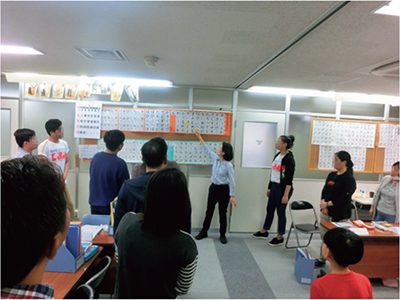 Resettled refugees in Japan attending the resettlement support program (Photo: Refugee Assistance Headquarters)
Resettled refugees in Japan attending the resettlement support program (Photo: Refugee Assistance Headquarters)

